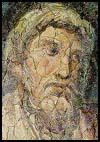Apuleius

Lucius Apuleius Platonicus was born in Madaura, a Roman colony in Numidia (now Algeria) in about AD 125. His father was a provincial magistrate and when he died he left his son over a million sesterces.
After studying in Carthage and Athens, Apuleius went to Rome where he became a successful lawyer. As well as writing about philosophy, Apuleius also wrote poems and novels. This included Apologia (A Discourse on Magic). His other works include On the God of Socrates, Apologia, Florida and On Plato and his Doctrine.
His novel Metamorphoses (The Golden Ass) is the only Latin novel that has survived in its entirety. It is an imaginative, irreverent, and amusing work that relates the ludicrous adventures of one Lucius, who experiments in magic and is accidentally turned into an ass. The book provides interesting details of life in the Roman Empire.
Lucius Apuleius Platonicus died in about AD 180.
Primary Sources
(1) Apuleius, describing a group of slaves in his novel, The Golden Ass (c. AD 165)
Their skins were seamed all over with the marks of old floggings, as you could see through the holes in their ragged shirts that shaded rather than covered their scarred backs; but some wore only loin-cloths. They had letters marked on their foreheads, and half-shaved heads and irons on their legs.
(2) In Apuleius' novel, The Golden Ass, a man is accused of poisoning his brother. (c. AD 165)
They shouted: "Stone him! Stone him!..." However the magistrates feared that to allow an act of rough justice would weaken the popular respect for law and order and encourage mass-rioting. They held... a properly conducted trial, with witnesses called on both sides who were carefully examined... The court was convinced of his guilt and however tender-hearted they might be, saw no alternative but to sentence him, as the Law provided, to be sewn up in a leather sack with four living creatures, a dog, a cock, a viper and a monkey, emblems of the four deadly sins, and cast into a river.
(3) Apuleius, describing a Isis festival (c. AD 165)
Now the special procession of the saviour goddess was moving by. Women in white garments, rejoicing in varied ornaments and wearing wreaths of spring flowers, strewed with blossoms from their bosoms the path along which the sacred procession was passing... Then pleasant harmonies sounded, pipes and flutes in the sweetest tones.
